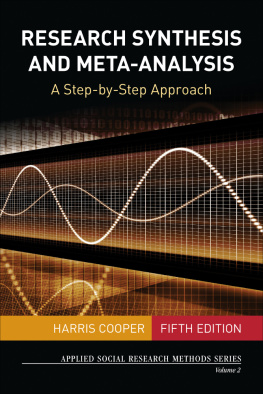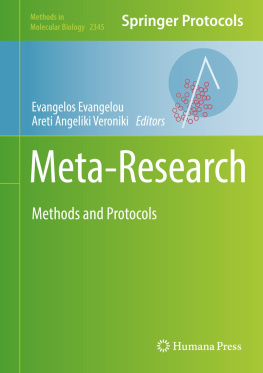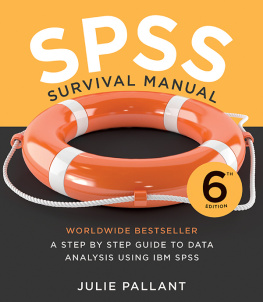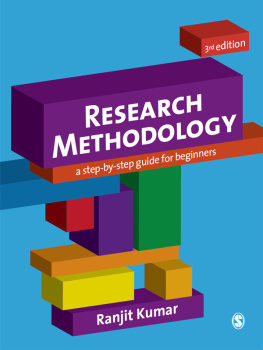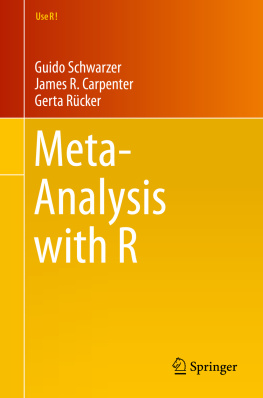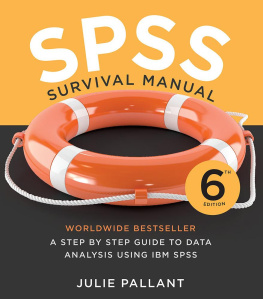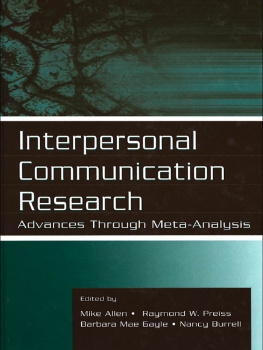Cooper - Research synthesis and meta-analysis: a step-by-step approach
Here you can read online Cooper - Research synthesis and meta-analysis: a step-by-step approach full text of the book (entire story) in english for free. Download pdf and epub, get meaning, cover and reviews about this ebook. year: 2016, publisher: SAGE Publications, genre: Romance novel. Description of the work, (preface) as well as reviews are available. Best literature library LitArk.com created for fans of good reading and offers a wide selection of genres:
Romance novel
Science fiction
Adventure
Detective
Science
History
Home and family
Prose
Art
Politics
Computer
Non-fiction
Religion
Business
Children
Humor
Choose a favorite category and find really read worthwhile books. Enjoy immersion in the world of imagination, feel the emotions of the characters or learn something new for yourself, make an fascinating discovery.
- Book:Research synthesis and meta-analysis: a step-by-step approach
- Author:
- Publisher:SAGE Publications
- Genre:
- Year:2016
- Rating:5 / 5
- Favourites:Add to favourites
- Your mark:
- 100
- 1
- 2
- 3
- 4
- 5
Research synthesis and meta-analysis: a step-by-step approach: summary, description and annotation
We offer to read an annotation, description, summary or preface (depends on what the author of the book "Research synthesis and meta-analysis: a step-by-step approach" wrote himself). If you haven't found the necessary information about the book — write in the comments, we will try to find it.
Cooper: author's other books
Who wrote Research synthesis and meta-analysis: a step-by-step approach? Find out the surname, the name of the author of the book and a list of all author's works by series.
Research synthesis and meta-analysis: a step-by-step approach — read online for free the complete book (whole text) full work
Below is the text of the book, divided by pages. System saving the place of the last page read, allows you to conveniently read the book "Research synthesis and meta-analysis: a step-by-step approach" online for free, without having to search again every time where you left off. Put a bookmark, and you can go to the page where you finished reading at any time.
Font size:
Interval:
Bookmark:
Fifth Edition
To Elizabeth
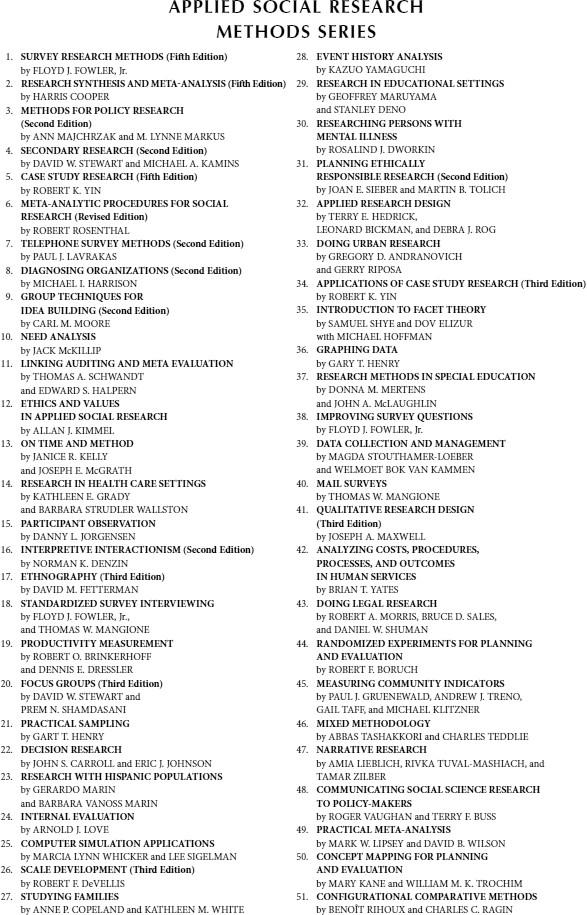
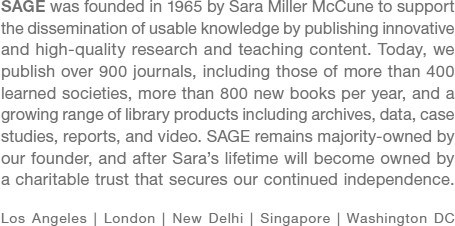
A Step-by-Step Approach
Fifth Edition
APPLIED SOCIAL RESEARCH METHODS SERIES
- Harris Coope
- Duke University


FOR INFORMATION:
SAGE Publications, Inc.
2455 Teller Road
Thousand Oaks, California 91320
E-mail: order@sagepub.com
SAGE Publications Ltd.
1 Olivers Yard
55 City Road
London EC1Y 1SP
United Kingdom
SAGE Publications India Pvt. Ltd.
B 1/I 1 Mohan Cooperative Industrial Area
Mathura Road, New Delhi 110 044
India
SAGE Publications Asia-Pacific Pte. Ltd.
3 Church Street
#10-04 Samsung Hub
Singapore 049483
Copyright 2017 by SAGE Publications, Inc.
All rights reserved. No part of this book may be reproduced or utilized in any form or by any means, electronic or mechanical, including photocopying, recording, or by any information storage and retrieval system, without permission in writing from the publisher.
Printed in the United States of America
Library of Congress Cataloging-in-Publication Data
Cooper, Harris M.
Research synthesis and meta-analysis / Harris Cooper, Duke University. Fifth Edition.
pages cm
Revised edition of the authors Research synthesis and meta-analysis, 2010.
Includes bibliographical references and indexes.
ISBN 978-1-4833-3115-7 (pbk. : alk. paper)
1. Social sciencesResearch. I. Title.
[DNLM: 1. Meta-Analysis as Topic. 2. Research Design.]
H62.C5859 2016
300.72dc232015029254
This book is printed on acid-free paper.

Acquisitions Editor: Leah Fargotstein
eLearning Editor: Katie Ancheta
Editorial Assistant: Yvonne McDuffee
Production Editor: Libby Larson
Copy Editor: Alison Hope
Typesetter: C&M Digitals (P) Ltd.
Proofreader: Vicki Reed-Castro
Indexer: Wendy Allex
Cover Designer: Janet Kiesel
Marketing Manager: Susannah Goldes
Every scientific investigation begins with the researcher examining reports of previous studies related to the topic of interest. Without this step, researchers cannot expect their efforts to contribute to an integrated, comprehensive picture of the world. They cannot achieve the progress that comes from building on the efforts of others. Also, investigators working in isolation are doomed to repeat the mistakes made by their predecessors.
Similar to primary data collection, researchers need guidance about how to conduct a research synthesishow to find research already conducted on a particular topic, gather information from research reports, evaluate the quality of research, integrate results, interpret the cumulative findings, and present a comprehensive and coherent report of the synthesis findings. This book presents the basic steps in carrying out a research synthesis. It is intended for use by social and behavioral scientists who are unfamiliar with research synthesis and meta-analysis but who possess an introductory background in basic research methods and statistics.
Instead of a subjective, narrative approach to research synthesis, this book presents an objective, systematic approach. Herein, you will learn how to carry out an integration of research according to the principles of good science. The intended result is a research synthesis that can be replicated by others, can create consensus among scholars, and can lead to constructive debate on unresolved issues. Equally important, users of this approach should complete their research synthesis feeling knowledgeable and confident that their future primary research can make a contribution to the field.
The scientific approach to research synthesis has rapidly gained acceptance. In the years between its first and fifth editions, the procedures outlined in this book have changed from being controversial practices to being accepted ones. Indeed, in many fields the approach outlined herein is now obligatory. The years have also brought improvements in synthesis techniques. The technology surrounding literature searching has changed dramatically. The statistical underpinnings of meta-analysisthe quantitative combination of study resultshave been developed and the application of these procedures has become widely accessible. Many techniques have been devised to help research synthesists present their results in a fashion that will be meaningful to their audience. Methodologists have proposed ways to make syntheses more resistant to criticism.
This fifth edition incorporates these changes. Most notably, . They include new statistics for describing meta-analytic results and new techniques for combining complex data structures. The latter are touched on only briefly because they require more-advanced statistical training, unlike the other techniques I cover. Also, the references have been updated globally through the text.
Several institutions and individuals have been instrumental in the preparation of the different editions of this book. First, the United States Department of Education provided research support while the first and third editions of the manuscript were prepared, and the W. T. Grant Foundation while the fifth edition was prepared. Special thanks go to numerous former and current graduate students: Kathryn Anderson, Brad Bushman, Vicki Conn, Amy Dent, Maureen Findley, Pamela Hazelrigg, Ken Ottenbacher, Erika Patall, Georgianne Robinson, Patrick Smith, David Tom, and Julie Yu. Each performed a research review in his or her area of interest under my supervision. Each has had his or her work serve as an example in at least one edition of the book, and four of their efforts are used in the current edition to illustrate the different synthesis techniques. Jeff Valentine, also a former student of . Four reference librarians, Kathleen Connors, Jolene Ezell, Jeanmarie Fraser, and Judy Pallardy, helped with the chapter on literature searching. Larry Hedges and Terri Pigott have examined my exposition of statistical techniques. Three more graduate students, Ashley Bates Allen, Cyndi Kernahan, and Laura Muhlenbruck, read and reacted to chapters in various editions. Angela Clinton, Cathy Luebbering, and Pat Shanks typed, and retyped, and proofread my manuscripts. My sincerest thanks to these friends and colleagues.
Harris Cooper
Durham, North Carolina
The author and SAGE Publications would like to thank the following reviewers:
Andrea E. Berndt, The University of Texas Health Science Center at San Antonio,
Stefan G. Hofmann, Boston University
Jack W. Meek, University of La Verne
Laura J. Meyer, University of Denver
Font size:
Interval:
Bookmark:
Similar books «Research synthesis and meta-analysis: a step-by-step approach»
Look at similar books to Research synthesis and meta-analysis: a step-by-step approach. We have selected literature similar in name and meaning in the hope of providing readers with more options to find new, interesting, not yet read works.
Discussion, reviews of the book Research synthesis and meta-analysis: a step-by-step approach and just readers' own opinions. Leave your comments, write what you think about the work, its meaning or the main characters. Specify what exactly you liked and what you didn't like, and why you think so.

